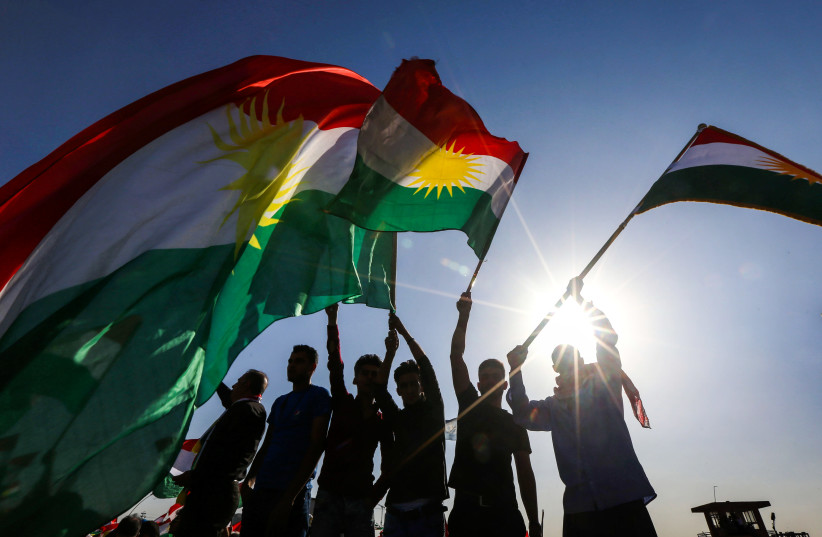Iraq said on Monday it had arrested three people linked to the outlawed Kurdistan Workers Party (PKK) and suspected of planning attacks across the country, including on a key oil export pipeline in the north.
Interior ministry officials showed reporters three suspects dressed in yellow jumpsuits with their faces covered by masks and said they had comprised a cell connected to the PKK.
"An investigation showed that these PKK members had plans to attack the Ceyhan oil pipeline linking Kirkuk, Erbil, and Duhok to Turkey," Interior Ministry spokesman Brigadier General Muqdad Meeri told a press conference in Baghdad.
Meeri said that the three had confessed to setting sabotage fires at commercial markets in the Kurdistan region, including the city of Kirkuk, over the past few months.
He said the recent fires had incurred losses of around $300 million and were ordered by the PKK as a part of a campaign to attack the commercial interests of a “neighboring state,” which Iraqi security officials said was Turkey.

The PKK, which has bases around northern Iraq, is designated a terrorist group by Turkey, the United States, and the European Union. The group launched an insurgency in southeast Turkey in 1984 in which more than 40,000 people have been killed.
The ongoing campaign against the Kurds
Turkish forces regularly carry out strikes in neighboring Iraq as part of its offensive against PKK militants based there.
Iraq has stepped up pressure on the PKK since the visit of Turkish President Tayyip Erdogan to Baghdad in April.
Meeri said the arrested suspects had also planned to attack busy market areas in the capital, Baghdad if there was "pressure from the federal government or government forces against them."
